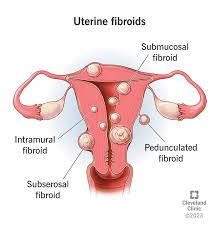In a groundbreaking study, researchers at the Netherlands Cancer Institute have compiled a detailed catalogue of bacteria residing in cancer metastases. Their findings, published today in the scientific journal Cell, shed light on the intricate relationship between these microorganisms and cancer cells, potentially revolutionizing cancer therapy approaches.
Analyzing over 4000 tumors, the research team unraveled the diversity of bacteria coexisting within cancerous tissues and explored their potential interactions with cancer cells and their microenvironments. Notably, certain bacteria were found to correlate with a worsened response to immunotherapy, offering vital insights into the complex dynamics at play within cancerous tissues.
“Our study provides unprecedented insights into the role of bacteria in cancer and how they may influence treatment outcomes,” remarked one of the lead researchers, Thomas Battaglia.
While much attention has been focused on the gut microbiome and its impact on health, this study delves into the less explored realm of bacteria residing outside the gut, particularly within tumors. Despite advancements in technology enabling the identification of these microbial inhabitants, the mechanisms underlying their colonization of tumors and their functional implications remain largely elusive.
Given the significant impact of metastases on patient outcomes and the therapeutic strategies targeting them, the research teams of Emile Voest and Lodewyk Wessels embarked on this ambitious endeavor to unravel the bacterial landscape within metastatic cancer tissues. Through meticulous analysis of tissue samples from over 4000 metastases across 26 cancer types, they deciphered the genetic code of both human cells and bacteria present within these tumors.
The sheer volume of data amassed, totaling a staggering 400 terabytes, required sophisticated computational techniques to elucidate the intricate patterns of bacterial colonization within tumors. “Our findings challenge preconceived notions, revealing that the presence and composition of bacteria in metastases are strongly influenced by factors such as tumor location, microenvironmental conditions, and cancer type,” added Battaglia.
Furthermore, the study uncovered a compelling association between specific bacterial species and the efficacy of cancer therapies. For instance, patients with lung cancer harboring Fusobacterium in their metastases exhibited poorer responses to immunotherapy compared to their counterparts lacking this bacterium. Additionally, the researchers observed that greater bacterial diversity within tumors correlated with increased activity of adjacent tumor cells, highlighting the complex interplay between bacteria and cancer progression.
“Our research lays the groundwork for novel therapeutic avenues targeting tumor-associated bacteria,” remarked co-author Iris Mimpen. “Understanding the intricate ecosystem within tumors, inclusive of bacterial inhabitants, holds immense promise for advancing cancer treatment strategies.”
Supported by the AVL Foundation, KWF Dutch Cancer Society, and Oncode Institute, this study marks a significant step forward in unraveling the role of bacteria in cancer progression and treatment response, offering new avenues for personalized cancer therapy.











